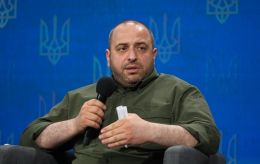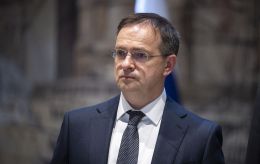'Putin won't come to Istanbul, there's 1 in 100 chance' – Russian political analyst Preobrazhensky
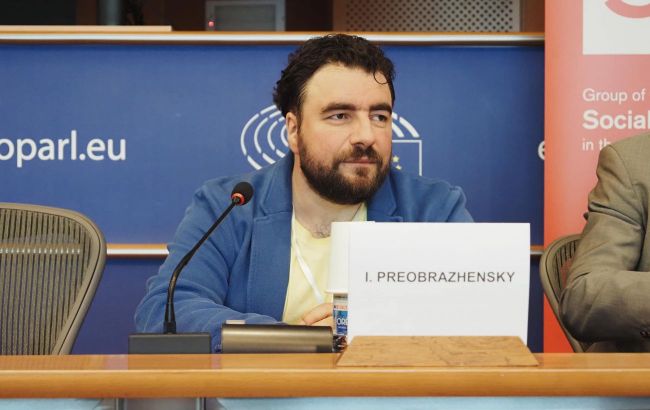 Ivan Preobrazhensky assessed whether Vladimir Putin would come to Istanbul (facebook.com)
Ivan Preobrazhensky assessed whether Vladimir Putin would come to Istanbul (facebook.com)
Will President Vladimir Putin go to Istanbul? Why is he avoiding Donald Trump, and why has he started talking about negotiations with Ukraine?
Russian opposition political analyst Ivan Preobrazhensky shared his thoughts in a brief interview with RBC-Ukraine.
Takeaways
- Why does Putin really need negotiations with Ukraine?
- Why is Putin avoiding direct contact with Trump?
- Will Putin go to Istanbul, or will he send someone in his place again?
- How did Zelenskyy trap Putin with his own proposal?
- What threats do new sanctions pose for Russia, and what is the Kremlin afraid of?
- Can Trump withdraw from negotiations and declare Putin non-negotiable?
Over the weekend, a meeting of the so-called Coalition of the Willing took place in Kyiv. European leaders – Emmanuel Macron, Keir Starmer, Friedrich Merz, and Donald Tusk – arrived in Ukraine. Together with President Volodymyr Zelenskyy, they had a phone conversation with Donald Trump.
.jpg)
Photo: meeting of the Coalition of the Willing in Kyiv (Vitalii Nosach, RBC-Ukraine)
The result was a joint ultimatum to Russia: a 30-day ceasefire starting from May 12 – or new sanctions.
Moscow ignored the initiative and proposed direct negotiations with Ukraine on May 15 in Istanbul. Zelenskyy agreed and stated that he would personally await Putin. Later, Trump also did not rule out that he might come.
But whether Putin himself will be there remains a mystery. In Russia, this has been called "a secret."
RBC-Ukraine asked Russian opposition political scientist Ivan Preobrazhensky to assess whether the Kremlin leader will appear in person or send someone in his place.
Putin avoids direct contact with Trump
— Putin proposed starting negotiations in Istanbul on May 15, and in response, Zelenskyy suggested that Putin come to Istanbul and meet in person. Do you think Putin will agree to this? The ball is now in his court.
— Putin will not go to Türkiye. There's a 1 in 100 chance that he will go there. At least, that's how it looks right now. He has several reasons for this. First, he's simply afraid to go because Erdoğan is by no means his ally, although they understand each other very well. Second, he's afraid to meet with Zelenskyy. He doesn't need that at all; in his eyes, it would be like a confrontation between a murderer and a victim.
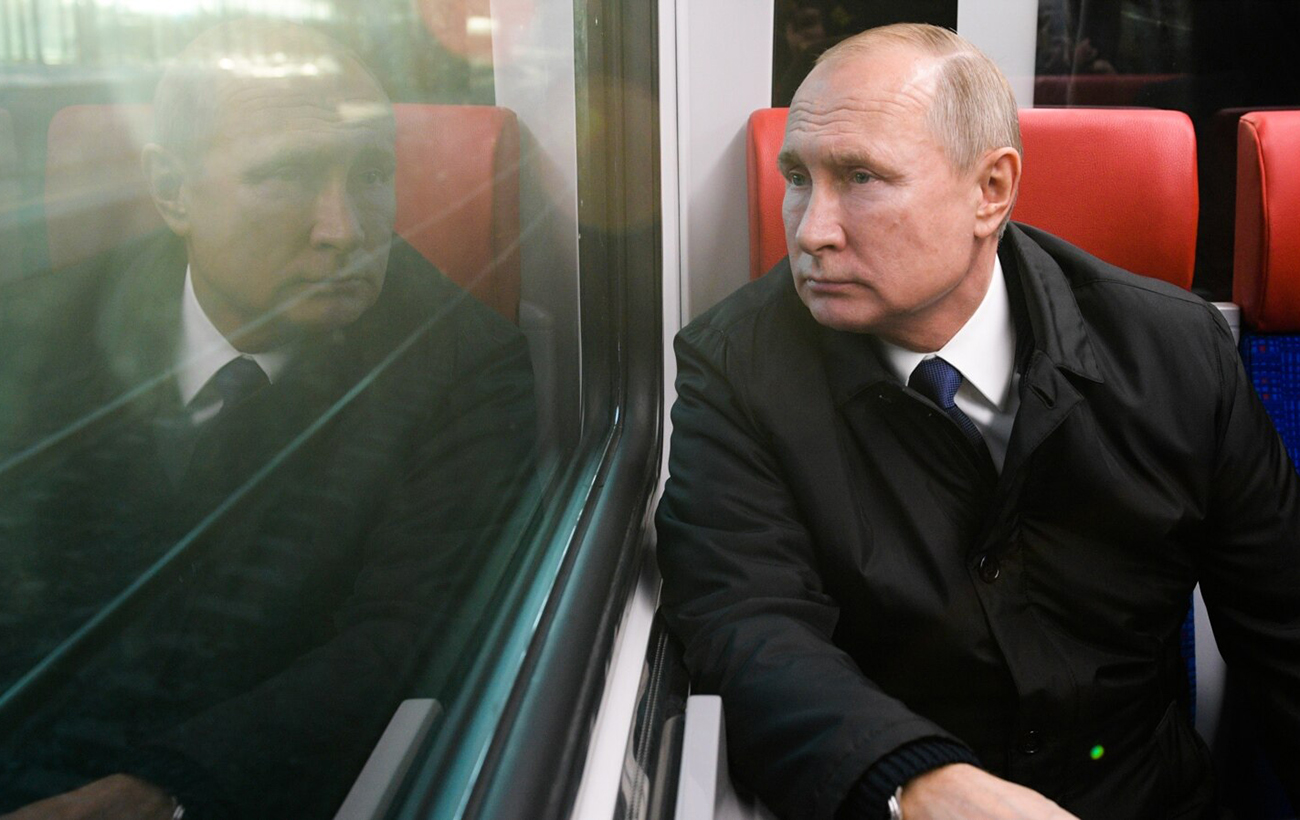
Photo: Vladimir Putin (Russian media)
And third, he's afraid that he'll be cornered, just like they tried to corner Zelenskyy in the US. He'll be forced to respond, and Trump will be pressing him, Zelenskyy will be pressing him, and maybe some other European leaders will be brought in. Overall, he's afraid of such a trap. Accordingly, the chance that he will go... Well, I don’t know what Trump would need to come up with, what threat to make him go, or what promise he could offer.
— And if Trump does go there? Will this influence Putin's decision?
— If Trump goes himself, there’s no sense for Putin to meet with Trump. He hasn't even agreed to a second phone call with him. He avoids direct contact with Trump. Because in direct talks, he’d have to formulate some position on ending the war, but he plans to continue it while not spoiling relations with Trump. The only way to do that is by not communicating with Trump.
Negotiations are needed by Putin not for peace, but for a pause
— You say that Putin is not planning to negotiate, that he wants to continue the war. What are his plans, in your opinion? Does he intend to reach the borders of the regions he has written into his constitution? Or what?
— I think he makes decisions situationally. He will go as far as he can. His goal remains unchanged. He needs Ukraine, either subordinated or occupied. The next goal is, in one way or another, fighting NATO and attempting to break up the alliance, and then perhaps trying to achieve something further, ideally.
All his objectives remain unchanged. What changes periodically are the means and his confidence that he can achieve this soon. Accordingly, he is for negotiations, but without his involvement, because within the framework of these negotiations, he can achieve, as he already has, the cancellation of some sanctions, etc.
So, he has set negotiations for this reason – to have some talks going on. At the same time, he is against a ceasefire during the talks, and he is completely honest about why. Here, I don’t think he’s lying. He’s against it because it would give the Ukrainian army a breather. He doesn’t want to give that, he wants to continue military actions as long as he has the advantage.
He will stop military actions only when he feels, as he did in 2022, that he no longer has a clear advantage.
So, he hopes to continue maneuvering and pressuring Ukraine with the help of Trump until that moment. He has no desire to set any conditions because setting conditions means starting to negotiate one way or another. And then, diplomatic methods could quickly force him into a ceasefire.
A ceasefire would be the last step he would take if Trump takes a very hard stance, and there’s a risk that any contact with the US could be cut off completely again. But in the situation he’s in now, a very uncomfortable one, he would rather break off contact and discard any potential benefits than go to negotiations and risk his own safety, freedom, and ability to continue the war. For him, continuing the war is clearly far more important. That’s his main goal, not achieving some short-term, immediate results.
— Does Putin really think he can continue the war? While the Russians have made some progress on the front, it’s not significant enough to be so confident. Does he have other information about the situation on the front?
— First, he probably has other data. More positive data. Second, he understands that it’s difficult for both him and Ukraine. This is, as they say, a fight for survival. In addition, he hopes that while the negotiations continue, Donald Trump won’t seriously help Ukraine with weapons. Soon, the supplies approved by Biden will end. And after that, it’s unclear what will happen. The US is already starting to slowly sell weapons, for example. But Putin hopes this won’t be on a large scale.
So, he hopes that Trump will be afraid to disrupt the negotiations in this way. And thus, Ukraine will remain without ammunition, for example. Here, there’s also the war between India and Pakistan, which, though it didn’t go very well, he tried to help India make the war more likely. Even a day before the fighting began, he managed to send anti-aircraft systems there.
Zelenskyy outplayed Putin by offering a personal meeting
— Why did Putin then propose talks in Türkiye if Erdoğan is not his "friend"? And what is the purpose of these talks on May 15, knowing that he won’t personally attend? Is it just another delay tactic?
— Of course, this is a chain of events. He announced a unilateral ceasefire for May 9 to avoid a full ceasefire, while not angering Trump. He thought he had skillfully maneuvered. But European leaders, who arrived in Kyiv with Zelenskyy, came up with a clever scheme to catch Putin red-handed and say, "What you did for three days isn't really a ceasefire, so let’s make it 30 days." They issued an ultimatum, which, most importantly, was supported by the Americans, at least verbally.
This put Putin in an uncomfortable position. To get out of this situation, he came up with the idea of negotiations. Perhaps he had already considered this move as a possibility in advance. And it just so happens that it is exactly three years after the previous negotiations and in the same place — Istanbul. He clearly has a thing for numerology.
It seemed to put Zelenskyy in an awkward position as if there was no ceasefire, but at the same time, someone needed to be sent to negotiate with Putin, knowing full well that Putin has no intention of engaging in serious talks. He’s already saying, "without preconditions," meaning there’s no real negotiation position. But he didn’t expect Zelenskyy to come up with his own move in response. And so far, Putin has no real answer to that move.
The only serious response would be to define a negotiation position and send a delegation. That way, Trump would be satisfied, and Putin wouldn’t go, but then they’d have to start real negotiations. And Putin doesn’t want that. Because that would mean, in the foreseeable future, within the next month or two, he would still have to agree to at least a temporary ceasefire. And that’s too early for him — he wants to buy more time. So, he tried to trap Zelenskyy, but in the end, he ended up in a trap himself. And it’s not very clear how he will get out of it without losing something.
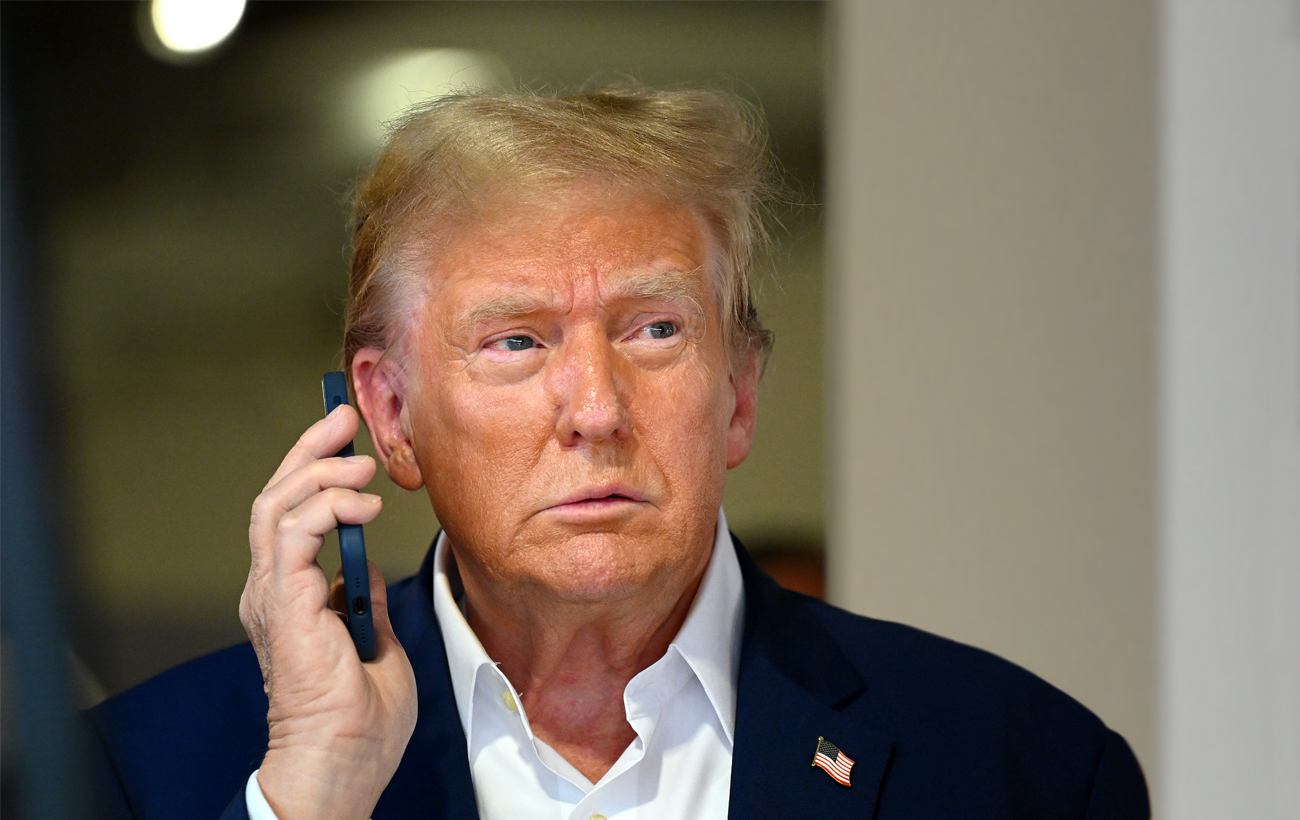
Photo: Donald Trump (Getty Images)
Putin hoped that Ukraine would find itself in a hopeless situation, and Trump, as happened, would say: "They are offering you negotiations, go there immediately and start talks with them." The idea was that there would be very little time, until the 15th, and Ukraine wouldn't have any time to come up with a response, thus having to begin negotiations on Putin's terms, which would be an entirely futile waste of time on one hand. On the other hand, Putin would then keep telling Trump: "Look, I initiated the negotiations, but the Ukrainians don't want to make any deals and won't stop the fire." This is the perfect scheme for him.
— Since Putin himself doesn't want these negotiations, which we eventually agreed to, does it mean he trapped himself?
— Well, in negotiations, one can always say: "Alright, we could discuss the demarcation line now, what it will look like. But without Kyiv carrying out 'denazification', announcing new parliamentary and presidential elections, we don't consider it possible to engage in any negotiations on a ceasefire." In other words, one can always make absolutely unacceptable demands and start discussing them as if it makes sense to discuss them at all. Then, negotiations can be broken, blaming Ukraine for the failure of the talks because it didn't accept Russian demands. So there are many possible options there.
— Putin can still do this, right? He can choose not to go, and Trump will still be satisfied even if the Russian delegation comes.
— He would look very weak. If he doesn't go, but Zelenskyy and Trump go instead, he needs at least to make it look like negotiations are taking place in the presence of Trump. So he would have to bring something concrete, not just a demand for "denazification." He wouldn't want that either. In the worst case, he will most likely have to do that. I suspect that they are currently preparing two different sets of delegations in case Trump comes or not.
If Trump goes, someone "decent" will go, at least the Speaker of the State Duma, who is, on one hand, the second-highest official in the state, but on the other hand, has no decision-making power. However, this would be respectful. But if Trump doesn't go, then it would be "another Medinsky" – the head of the Russian Ministry of Foreign Affairs department, or some deputy secretary of the Security Council. And then it all turns into just another absurd spectacle.
— Doesn't Putin care if he ends up in a weak position or not in front of anyone?
— Of course, no, because he can survive it, but it's very unpleasant. It's the "tough guy" logic, where he can't find himself in a weak position. Moreover, Trump is also operating in this logic. And let's be honest, Zelenskyy is also trying to operate in the same logic. Well, the key point is that this "tough guy" style has helped Zelenskyy in this case. We'll see, maybe we don't see some option that Putin is currently working on to get out of this situation without losses.
Sanctions for Russia will be unpleasant
— If we talk about the sanctions threatened by European leaders, including Macron, who said that if Russia does not agree to a 30-day ceasefire, stronger sanctions will be imposed. Will they be effective?
— They will be unpleasant in any case. And the most important thing is that if the United States joins in on the new sanctions, regardless of how serious they are, it means that the US will not lift the existing sanctions. And that is the most dangerous thing in the current situation. Their goal, which is quite achievable, is to make Trump angry that Putin is not listening to him and is "leading him around." Putin has managed to avoid this so far. But in the situation where Trump has to go to Istanbul, and Putin doesn't show up, it would be a personal insult.
— After the Vatican, there was a sense that Trump had slightly realized that Putin really didn't want peace. And that feeling still lingers. But there’s also a feeling that Trump seems really tired. And here, I think, there are two options. Either he’s tired and angry, or he’s tired and has told everyone to get lost. What do you think is the more likely option?
— The most likely option, it seems to me, is that Trump is gradually stepping away from this negotiation process as a mediator, no longer trying to be the main mediator. But it's not that he storms out and says, "I don't care about Ukraine anymore, and I’ll continue negotiations with Russia on matters that concern us, like the Arctic, gas, etc." Instead, he leaves, slams the door, and says, "I’m done with this Russia, which is absolutely impossible to negotiate with."
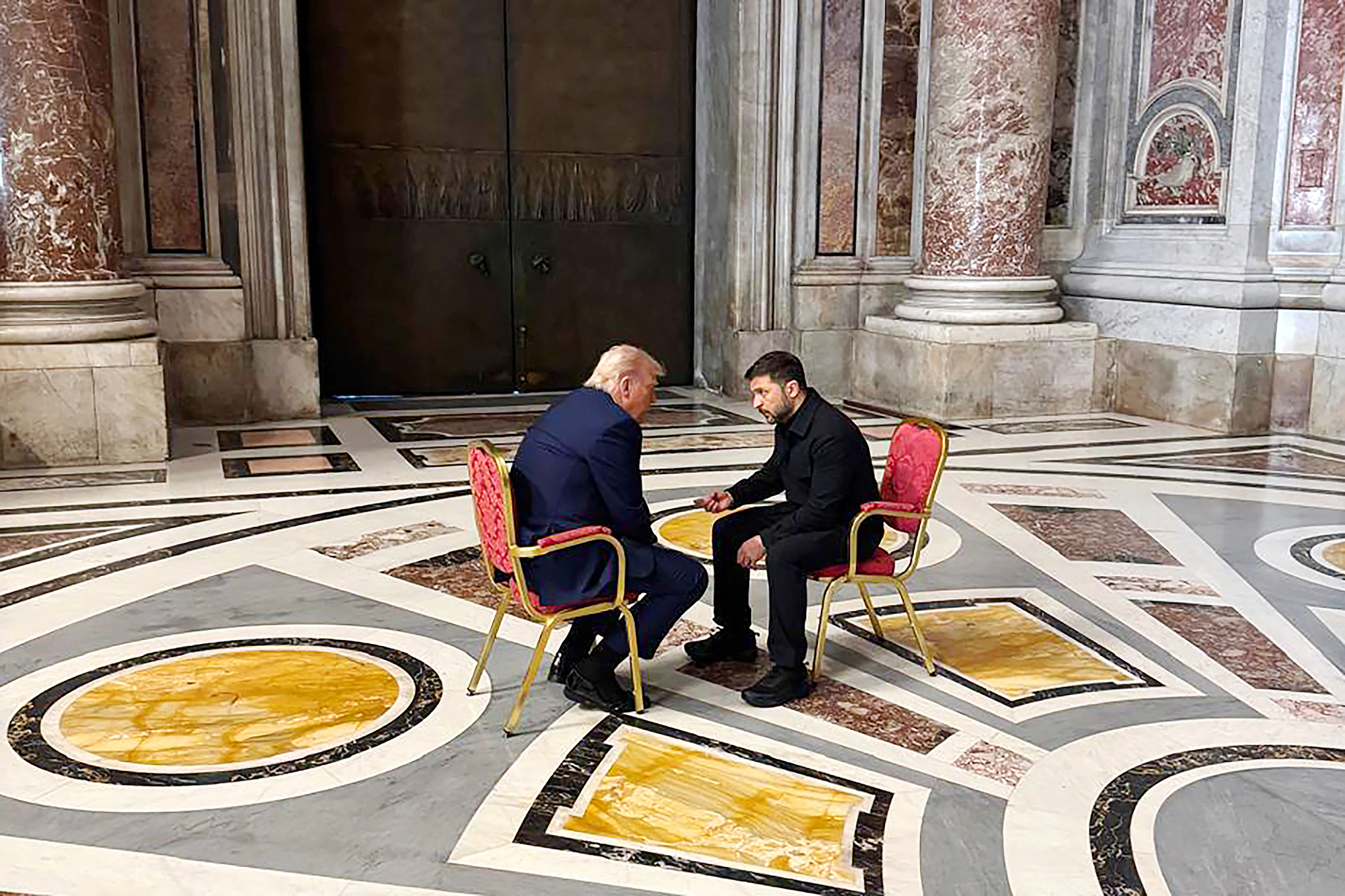
Photo: Meeting between Trump and Zelenskyy in the Vatican (Getty Images)
And then, and it seems more likely at the moment, agreements with Ukraine remain in place, and he hands over the opportunity to lead the negotiation process to the Europeans, maintaining some continuity. In the event of a major necessity, he might even support them in some initiatives. He does not cancel the sanctions that were previously imposed on Russia. He may even introduce new sanctions against it. And he does not make any agreements with Russia. In essence, he ends this game of a potential big deal with Russia.
Under current conditions, this is one of the best options. Accordingly, the Europeans provide him with some money for weapons. And Ukraine, which can work within the framework of this agreement on resources. This is the worst-case scenario for Putin if we consider the most likely real option, not a hypothetical one.
Putin has already gained from the negotiations
— If in the current situation, Putin decides to continue the war and thereby break ties with the US, what does he ultimately hope to achieve? What’s the bottom line?
— I think the bottom line for Putin is the lifting of the latest sanction imposed by the Biden administration — the one that included the removal of a Russian bank from SWIFT, which handled payments for gas and likely for oil. So, he’s already gained something. Slovakia and Hungary continue to buy Russian gas. And they can continue to purchase Russian oil calmly and pay for it not through roundabout methods, but directly.
Putin already, so to speak, has in his pocket Trump’s statement that the US might recognize Russia’s status in Crimea. Of course, for him that’s not enough — it would be better if Trump recognized it outright. But even this already casts doubt on any talk of international law. That’s the minimum. These are obvious things.
Another plus for him is the prolonged pause in US arms supplies to Ukraine, which could continue. So, Putin is already coming out of these negotiations with certain additional benefits, without having sacrificed anything. He hasn’t made a single concession.
— But all of this could fall apart, couldn’t it?
— It could fall apart, but at the very least, he’s already gained something. Meaning, it wasn’t in vain that he entered the negotiations. Clearly, the effort, time, and money he spent on these talks are far less than what he’s already managed to gain from them. So, his strategy — to not withdraw from the process, but agree to nothing — basically works. It’s already worked. He simply hopes to get even more, but in this case, he won’t get it.
